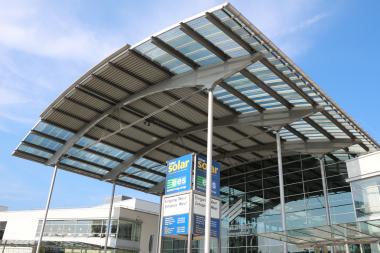Coronavirus: Cancellations and Postponements of German Exhibitions May Cost up to 3 Billion Euro
- Calculation by AUMA - Association of the German Trade Fair Industry concerning the macroeconomic impact for Germany based on ifo-survey
Germany as a trade fair venue has already been hit hard by cancellations and postponements of trade fairs. Trade fair organisers and service providers like booth constructors are already suffering from heavy financial losses. Many other branches of business are affected as well, especially the hotel and catering industry, the transport industry and numerous local suppliers and contractors. These industries are suffering considerable losses in sales with a direct impact on employees. Due to sales losses the tax revenue will fail, hence cities or regions are directly affected economically.
AUMA’s Institute of the German Trade Fair Industry has forecasted the consequences for Germany for the first time based on the calculation of the ifo Institut in regard to the macroeconomic relevance of German trade fairs in 2018.
Thus a loss of about three billion Euro for the national economy is to be expected – just by cancellations and postponements of trade fairs. This affects more than 24,000 jobs and tax authorities will miss over 470 million Euro of tax revenue.
These sums do not include lost sales of companies, which had expected to generate turnover during the trade fair. These figures are many times higher than the above-mentioned sums and can only be substituted to a limited extent through other measures. No other marketing device is able to represent a company and its products as comprehensively as the personal contact.
“Almost all plans for trade fairs during the next months are null and void. Organisers, exhibitors, visitors and contractors are losing any planning reliability. They have high up-front costs without the prospect of any benefit or they suffer from severe and acute loss of sales. The trade fairs’ annual contribution of more than 28 billion Euro to the national economy could decrease by 10%. It has to be made sure that the (German) economy – particularly small and medium-sized enterprises – in future will be able to utilise the highly effective instrument called “Messe” (trade fair) and can continue cooperating with potent contractors. Without governmental support this can hardly be realised, despite great efforts of the exhibition industry itself.”
Germany is number one worldwide in terms of organising international trade fairs. Annually 160 to 180 international trade fairs take place in Germany, with 180.000 exhibitors and ten million visitors. Partners from all over the world meet up on German exhibition sites.
German exhibiting companies are investing almost half of their b2b communication budgets in trade fair participations. The expenses of exhibitors and visitors for trade fairs in Germany result in macroeconomic production effects of more than 28 billion Euro. More than 230,000 jobs are ensured by the organisation of trade fairs. Tax revenues based on trade fairs sum up to approx. 4.5 billion Euro annually.
AUMA Ausstellungs- und Messe-Ausschuss der Deutschen Wirtschaft e.V.


